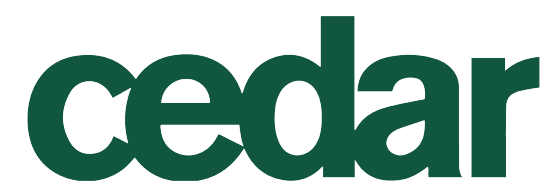DE&I at Cedar – a work in progress
If you read our previous blog, ‘The Long March to Equality’, examining the rise of DE&I within recruitment, you may have been surprised, as we were, at how far the industry has come since the first UK legislation in 1919. However, as we all know, the world is very different today…
What was once regarded as perfectly normal is now frowned upon, or positively decried, with the interpretation of specific words and behaviours in particular becoming an ever-moving target. Inter-generational and inter-regional differences in accepted patterns of behaviour can be pronounced, yet despite, or perhaps because of this, it is arguably more important than ever for recruiters to raise their game ensuring that D, E & I are woven into the fabric of their operations. That said, it’s important to realise that no-one will ever get DEI right, simply because any attempts to square the diversity circle tend to founder on the observable fact that said circle is constantly changing.
For Cedar, as recruiters, it’s vital that we understand this shifting landscape and, as a first step, we have conducted an internal survey of our own staff to see how we compare to the national averages for a wide range of diversity metrics. Overall, we score highly against these national statistics, but we are well aware that London, where we are based, is one of the most diverse cities in the world. However, we also need to recognise that we have candidates and clients in other parts of the UK (and indeed overseas) and we are well aware that it isn’t just rural Britain that lacks diversity – a lot of neighbourhoods in our towns and cities, even in London, also do.
We firmly believe fairness means respecting the views of everyone, wherever they are based or (within the law) whatever their own personal circumstances and/or beliefs might be.
It is important to state at this point that, while we shy away from virtue signalling, since our company was founded we have always quietly lived out the values of DEI in every aspect of our client and candidate relationships, in our approach to our own hiring and in the way we expect everyone who works for Cedar to display these values both in theory and practice. We know we’re never going to be perfect (that squared circle again), but we do believe we try very hard to get it right.
Key results from our internal survey include the following:
- 93% say “I can be my true self at work.”
- 84% agree (or strongly agree) that “people from all backgrounds and with a range of identities have equal opportunities to advance their careers at Cedar.” (no-one disagreed in any way with this statement).
- 95% agree (or strongly agree) that Cedar is a safe and supportive workplace for BIPOC individuals (again, no-one disagreed in any way with this statement).
- Finally, although perhaps not as ‘fashionable’ as some other areas, post-Covid, age discrimination has been highlighted as a key problem, not just for those over 60 but even for those in what many would regard at the prime of their working lives. The majority of our employees are Millennials or Gen Z, so it’s important that we make them aware of this.
That last point is another acknowledgement of the difficulty of ensuring fairness in recruitment. Irrespective of our race, ethnicity, religion, sexuality or gender, the vast majority of us will grow old. Yet ironically, ageism is one of the most prevalent, yet least publicised areas of discrimination in the job market, and, post-pandemic, it’s getting worse.
Add into this intersectionality, the interconnected nature of social categorisation, creating overlapping and independent systems of disadvantage and it’s not hard to see why, in our previous blog, we referred to recruitment as “a constantly shifting landscape, where many different human traits combine in a rich and valuable mix.”
As we noted, “navigating this area requires constant awareness that we are, naturally, not all the same, but that, no matter who we are, we deserve equal and fair treatment when we apply for a job”. We might add that we also all deserve equal and fair treatment when we are working for a company. For Cedar, DEI is a constant work-in-progress, where we are striving to give employees a platform to share their voice and empowering individuals to create communities such as employee resource groups that are action-orientated. Cedar feels it’s important to provide opportunities for employees to share thoughts and experiences and for the company to act on them.
If you have any thoughts on what we do, how well we do it (even if we don’t do it well), then we would be pleased to hear from you [email protected]


